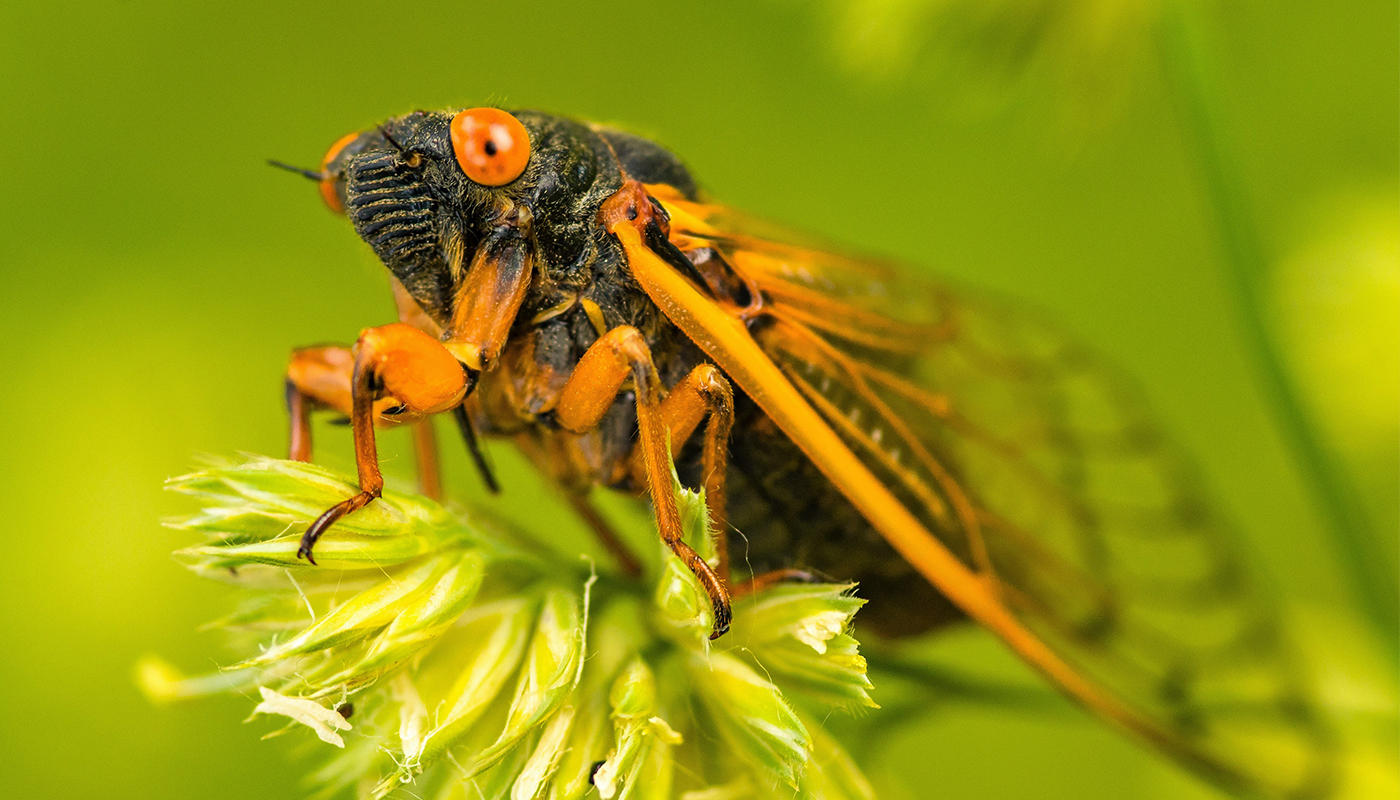Later this month, the 17-year cicada brood will emerge from the soil in Cook County and throughout northern Illinois. A separate 13-year brood will come out of hiding further south in Illinois, and there will be overlap between the two in parts of central Illinois—something that hasn’t occurred in 221 years—but not here.
While the cicadas will be numerous and deafening, they’re well worth experiencing, and there is no reason to avoid them. “Like the solar eclipse, this is a natural phenomenon to experience and document, not be scared of. The cicadas won’t be apocalyptic, or louder than what we heard 17 years ago,” says Negin Almassi, resource management training specialist with the Forest Preserves.
“They will not bite you. These cicadas have a straw called a proboscis to stick into trees and suck out nutrients,” adds Zachary Salus, a Conservation & Experiential Program (CEP) aide with the Forest Preserves. Aside from that, “They’re too busy finding a mate. Even if they just land on you, they just sit there. They’re docile.”
The 17-year cicadas in our area, known as Brood XIII, and other local species spend most of their lives in “nymph” stage, feeding on plant root fluid from below the ground, Salus says. Once the soil reaches 64 degrees, they shed their exoskeleton and tunnel to the surface, leaving telltale signs with little “chimneys” in the soil.
Over the remaining 10 or so days of their lives, they breed and lay their eggs after slicing into the bark of trees, which can injure the impacted branches but does not harm mature trees. The next generation of nymphs hatches roughly six weeks thereafter, drops to the surface and burrows down for their 17-year lifecycles.
Homeowners who would like to protect their newly planted saplings and young trees can place netting with holes no more than ¼-inch wide over it—just do it soon, before you hear the males start to sing. But Almassi urges Cook County residents not to spray pesticides or insecticides to try to protect your trees. “Cicadas are food for wildlife and even your pet dogs,” she says. “You don’t want to poison them. And [pesticides] won’t work anyway.”
Cicadas create their din (or sound) not just for the sake of drowning out conversations at block parties—it’s the songs that male cicadas sing as part of their mating efforts. “Unlike the cicadas that come every year, these males aggregate in large choruses that can get quite loud,” says Almassi, who will lead a sound mapping project for members of the public to help measure their emergence.
Emerging all at once, in massive numbers, overwhelms predators, from robins to chipmunks, who can’t possibly eat them all. “There will be a lot more full bellies, as cicadas rely on satiation as their main predation strategy,” Salus says. “You could probably finish off one whole pizza. But what if I had two whole pizzas. Would there be leftovers then? That’s their strategy, to have ‘so many of us out here that you can’t eat us all. … My brothers and sisters will reproduce, even if I don’t.’”
The reason periodical cicadas aren’t more well-studied is precisely because they only emerge once every 17 years, Salus says. “This is not a common phenomenon,” he says. “We’re able to correlate from studying other broods, looking into ecological interactions, and taking the data this year. We’re also tracking trends of insect abundance; we worry that the overall numbers of insects are going down, which could have major impacts on the ecosystem.”
For example, a fungus called Massospora cicadina lurks in the soil and infects cicadas as they come up from the ground. Over time, Salus describes, it takes over parts of the back half of the cicada’s body and spreads itself like a sexually transmitted disease as the cicadas mate. “It’s all one big party,” he says. “Unfortunately, parties also bring STDs. It will be passed between cicadas and potentially limit their numbers.”
Regardless, they will still be ubiquitous, raucous and stupendous.

